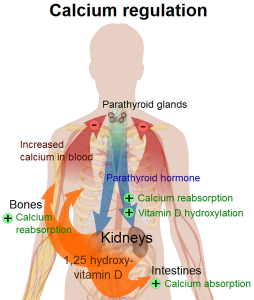 Vitamin D may have new support as a complimentary supplement for those looking to help control diabetic blood sugar levels (levels averaging a fasting blood glucose of > 126 mg/dL). See our recent updated blood sugar chart information for a summary on blood sugar levels among diabetics, pre-diabetics, and normal blood sugar levels.
Vitamin D may have new support as a complimentary supplement for those looking to help control diabetic blood sugar levels (levels averaging a fasting blood glucose of > 126 mg/dL). See our recent updated blood sugar chart information for a summary on blood sugar levels among diabetics, pre-diabetics, and normal blood sugar levels.
A new study published by the American Journal of Clinical Medicine indicates that study participants who received elevated amounts of Vitamin D showed a decrease in average blood glucose levels. The study involved participants who we're already diabetic, monitoring their results over a 3 month period.
 Participants received one of 3 sample meals fed twice a day. Plain yogurt, vitamin D fortified yogurt (500 IU of Vitamin D), and one that had both vitamin D fortified (also at 500 IU) and calcium.
Participants received one of 3 sample meals fed twice a day. Plain yogurt, vitamin D fortified yogurt (500 IU of Vitamin D), and one that had both vitamin D fortified (also at 500 IU) and calcium.
After three months, the plain yogurt group saw an increase from 187 to 203 milligrams (mg/dL), while the both of the other vitamin D fortified groups saw blood sugar drop from 183 to 172.
We haven't see that many tests using straight fortified Vitamin D, and the yogurt twist made it recognizable. Despite the relatively low sample size (and anybody but us find it odd that the research was done by a research group in Iran – the National Nutrition and Food Technology Research Institute), it's a worthwhile study worth taking note of.
There's some speculation that the vitamin D may be elevating tissue sensitivity to insulin, and may help stimulate the production (timely production that is) of insulin. This could be great news for those with diabetes, following a glycemic index diet, or possibly on a similar low sugar/low carb nutrition plan like the south beach diet plan.
As always, be sure to check with your health care provider as taking too high a level of vitamin D could be toxic.
